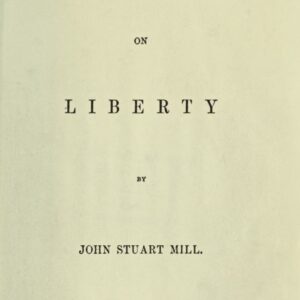On Liberty is a political-philosophical work. Without a doubt, the most famous work of the British scholar John Stuart Mill. He published the series of five essays in 1859.
During the years, On Liberty enjoyed great success as well as influence on future personalities. It is one of the most impactful works in the field of liberalism and libertarianism. Yet, some call the work too vague or outdated.
Many great philosophers were of inspiration for Mill – his father, the Bentham brothers, Adam Smith, or Thomas Paine. However, the most significant source was his wife, Harriet Taylor Mill. She died shortly before the release of the work.
Description of On Liberty

First, Mill explains that, in the book, he refers to the freedom of an individual rather than the philosophical concept of free will. Hence, what is the relation between an individual and the state. He further describes the historical relationship between individuals and authority.
According to Mill, the most significant part of Liberty is the freedom of action (including freedom of speech). The state should only interfere when the actions of an individual could harm another person. To sum up, people should be allowed to do what they want until they hurt others.
Further, Mill continues to defend the freedom of speech. Under no circumstance should people suppress the opinions of others. Even if another view is wrong, it may still contain some truth. And besides, an unpopular or even censored belief may be truthful. It may even be better than the general belief! He views this as a form of the tyranny of the majority.
Further, it is better to be wrong than to have no right to do or say anything. Only that way can we learn. Hence, Liberty is the only way an individual can grow and progress.
Lastly, Mill criticizes the government-controlled economy and education as he sees them as evil. Thus, he calls for a free market and freedom of education. Besides, he condemns the oppression of women who had no voting rights at the time.

